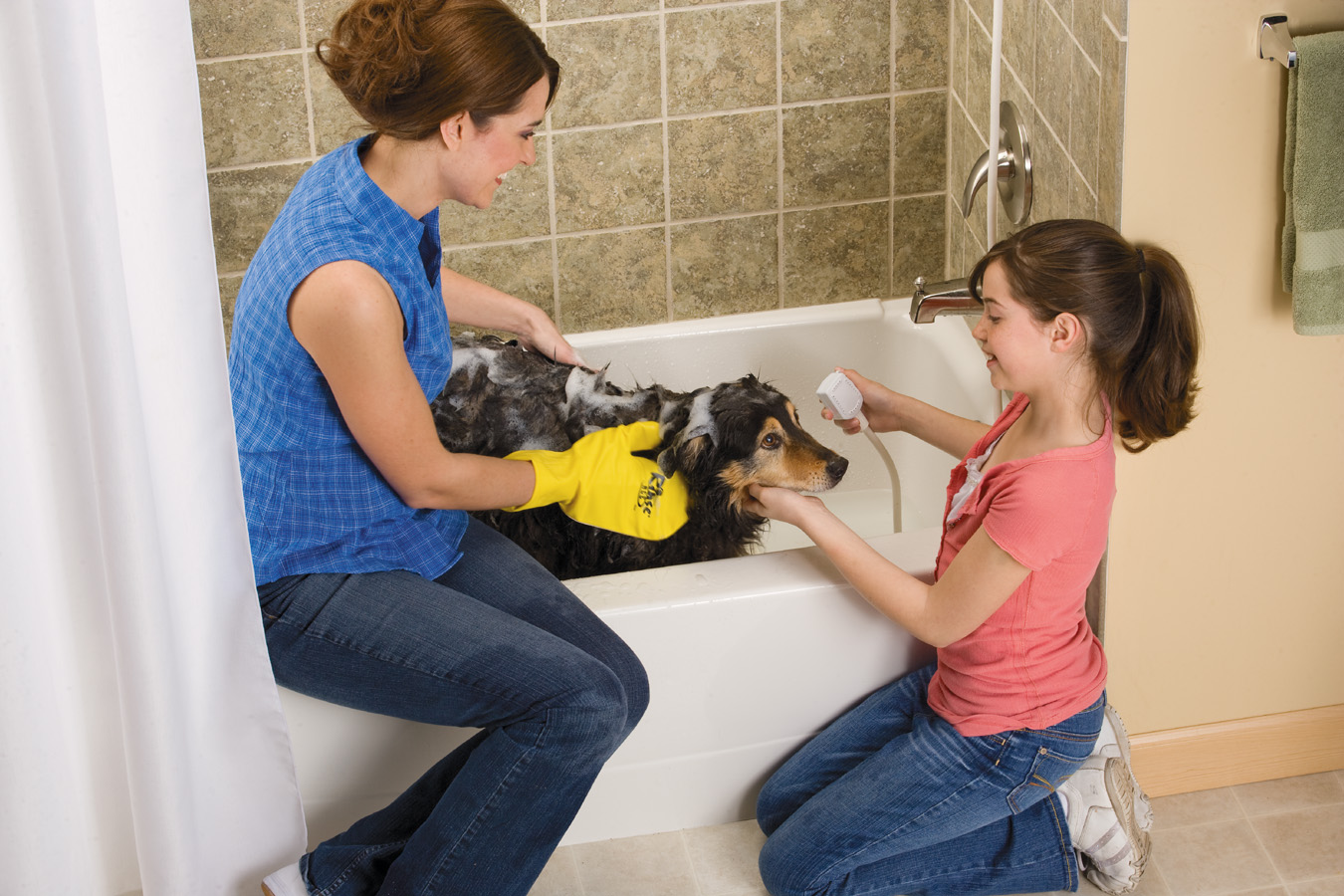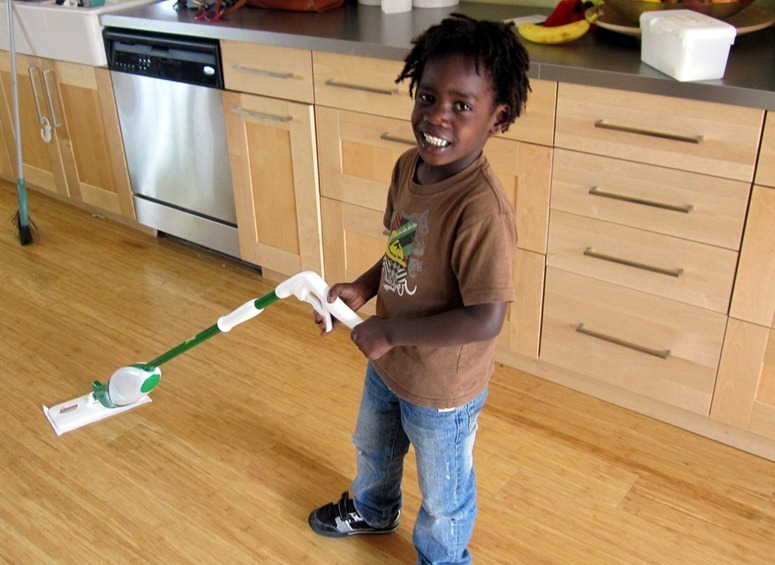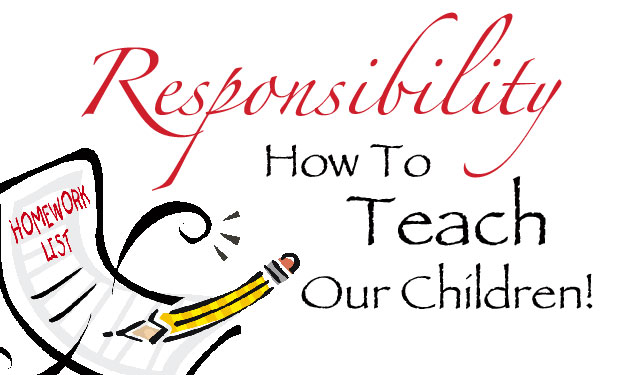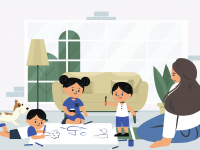General approach to teaching kids responsibility
There’re so many things each parent wants to give to his child. We work hard to be able to provide our kids with basic things like warm and nice house, proper nutrition and health care, clothes, toys and such important things like personal development opportunities, decent school and college education. But the most challenging part of the upbringing process costs nothing but your nerves, patience and internal strength. It involves ensuring that your precious little munchkin grows up to be a good and caring person, who gives no attitude to others, treats everybody equally, has a strong sense of responsibility, is willing to make the right choices, acknowledges and corrects his own mistakes.
The greatest lesson we teach our children is that our actions towards other people and ourselves, towards various situations, opportunities and difficulties define what kind of people we are. Being a free and independent person involves bearing all responsibility not only for your words and actions, but also for the risky choices you make, people and other living creatures you have to take care of. And, in order to be able to take care of someone else, we should learn how to take proper care of ourselves. Being able to make the right choice when no one else can make it for you and determine someone’s future by it involves being ready to accept responsibility for the consequences of such a choice.
Human being is not a robot and he is designed to make mistakes, so that he becomes a better person while recognizing and correcting them. We have to undertake various tasks and risks, we have to face the reality and do something about it. We have to be responsible for someone who relies on us. We have to make a difference. We shouldn’t be ignorant and self-obsessed creatures the word is already stuffed with. We were given an opportunity to live, so we have to use it wisely.
And, everyone knows that, you’ll say. Don’t state obvious things, you’ll say. How am I supposed to explain those things to my little kid when many adults didn’t manage to understand them throughout their entire lives? How can I teach my 4 or 5 year old son/daughter how to be responsible? Is it something I should do at this or that age?
My answer is that first of all, you have to teach what you believe. Otherwise, it won’t work. Secondly, no one knows your child better than you. That’s why you’re able to find the right approach to your kid and find the best way to teach him important personal qualities. And finally, you should look at the world through the child’s eyes and start with something that’s important for a typical 5 year old boy or girl. At this point, you’re supposed to teach your kid how to take care of himself, how to help other people and how to fulfill their little ‘obligations’ without anyone’s reminder.
Give your child a chance to be responsible
Caring too much for too long and doing even the easiest tasks people do without thinking for your child doesn’t make his life easier. In the long run, at least. Don’t do such stuff as folding the clothes, putting the shoes in place or making the bed for a child, who’s completely capable of doing that on his own. Don’t make a nanny/babysitter do that as well, as it will create two quite undesirable impressions. First of all, your child will grow up being used to having a constant assistance. And, that leads to the fact that he can never be really independent and capable of doing stuff, unless he changes his life drastically. But doing that in adult life is much harder than acquiring those skills and features from the very childhood. It feels like breaking your own personality.
So, giving your children more and more freedom and determining their area of responsibility is a key to success. Even when a toddler is taught to pick up his toys after play time, he learns that he has to handle the consequences of his previous actions (made a mess – clean up). Of course, he won’t fully understand why he’s supposed to do that. But, a positive habit of accepting the responsibility will start developing from that point.
And, guess what? It’s better to start as early as possible, while your little one still loves to help his parents and attempts acting as a responsible adult. That’s something you have to encourage, as just in a couple of years your child won’t be so happy when you ask him to pick up the clothes or toys before heading to his friend’s house or unload the dishwasher before watching TV. My point is as simple as it can be. Carpe diem, parents, carpe diem.
Practical tips on teaching kids responsibility
Show the connection between actions and consequences
Your kid needs to know that his actions really mean something. And not only his actions. You have to explain that just like other people, especially grown-up and mature people, he will have to experience the adequate consequences of his choices and actions. It’s also important to teach through the practice and let your child learn his lesson in real life, but not only in theory. Besides, he needs to realize that he’s the only one who’s going to deal with results.
Mommy and daddy won’t bring his book or lunch to school because he forgot to put it into the bag in the morning. Parents won’t have to retake the test after he fails it. His friends will have to wait for him while he cleans up his room before he goes out. Otherwise, he stays at home till the room looks perfect. Dad won’t come to the principal’s office to beg the head of the school not to make his 15 year-old son stay at the summer school. Didn’t study when you were supposed to – study when other students are enjoying their deserved summer break.
Your little toddler won’t watch her favorite princess movie unless she finishes her dinner. Her toys won’t stay with her if she always leaves them on the floor after play time.
Mom will have to work on the weekends as she didn’t manage to finish her task during the week-days. Dad won’t receive the bonus payment if he keeps being late to work. And so on and so forth.
These examples of misbehavior and irresponsibility work effectively if you stick to the rules and don’t follow the child’s excuses all the time. But, when they’re combined with positive examples, encouragement and praise for improving his responsibility, they work as a charm. Reward your child when he manages to conquer his bad habit of forgetting his textbooks at home or listens when you ask him to help around the house. Encourage him to notice what needs to be done without someone’s reminder.
Avoid double standards
Talk to your partner to develop a unified ‘strategy’ when it comes to allowing something or punishing for misbehavior. Your child shouldn’t have a ‘good’ parent and a ‘bad’ parent. You have to be on the same page about the way you teach your kids responsibility, discipline and praise them.
If you have a babysitter or nanny, explain your parenting approach to her as well. Give her something like the list of child’s responsibilities and ask her to make sure that he sticks to what he’s supposed to do throughout the day. Don’t forget to note if she’s supposed to help him finish certain things or help him out when he’s in trouble (see the textbook example). Experienced nannies will only appreciate those details, as they understand the importance of teaching a child how to be responsible and make his own decisions.
Find an experienced babysitter
Give them something to be responsible for
Allow your kids make their own decisions, as it will help them develop the habit to analyze various options of one action in advance and predict possible consequences. That’s how they learn to make right choices, based on their internal believes. That’s how a human being makes sure that he chooses right. That’s how you give your child an opportunity to feel the sense of responsibility and actually like, but not fear it.
When your kid is still too young, you may offer him different options to choose from. For instance, your daughter has to clean up her toys today. But, you may ask her if she wants to do that after you go for a walk or after dinner. And, you may also give her several options how to arrange her dolls, stuffed animals, etc. Or, you may offer your child to choose from several chores he can do today. Or, you may let him choose a reasonable reward. Decide what day of the week will be the cleaning day together.
Pets are great responsibility for older kids. Buy them their own cat, dog or even a hamster so that they are the only ones who take care of that creature.
Listen to your kid and give him a chance to speak out. Ask him what he thinks about this or that event, what he’d like to do on the weekends, etc. Involve your child into your life and make him a part of decision-making process, so that he feels that he’s also able to influence the situation and make a difference.
If you believe in your child and let him feel the power of making his own choices, he’ll feel more confident about himself and more willing to become independent individual with a high sense of responsibility. He’ll just have the goal to reach.
Responsibility and chores
As someone said, it’s not what you do for your children, but what you have taught them to do for themselves that will make them successful human beings. And, chores is the best tool you may use for that purpose.
Every parent decides which chores his child will be responsible for. But what’s the best way to divide those chores between the family members and how to make sure that your child remains responsible for his part of housework? Should we pay our children for completing their chores?
Frankly speaking, chores are something parents often disagree on. Everyone agrees that we should prepare our children for living on their own. But, as loving and caring parents, we want to help our kids out as soon as we see that they’re struggling with something. So, we don’t make them do too much housework. We let them skip their turn to wash the dishes when we see that they’re tired after school. We don’t make them deal with bins when it’s raining outside and so on.
However, chores are quite important. First of all, you teach your child how to perform basic housework. Secondly, you receive much needed help and make your child get used to the fact that people have to support and help each other.
Most importantly, chores develop your kid’s sense of responsibility. Even toddlers and young kids feel great when they’re able to participate in adult’s activities and help around the house. They understand that they might be useful. Later, when you entrust your young kid or teenager with certain amount of tasks and don’t interfere into their execution, you let them know that you totally trust them. Let your child figure out the ‘strategy’ of how to do this or that chore, how to manage his time, set priorities and complete the daily/weekly agenda. Set them free, but control their ‘flight’.
If you’d like to hire a nanny (visit HireRush.com to find the one in your local area), don’t forget to mention that your child is supposed to wash dishes after lunch or clean up his toys on his own. Ask her to write down what chores your kid has done throughout the day to praise him once you get home. Develop a chore chart to visualize the child’s progress.
Don’t be too stressed and angry when your child misbehaves. Don’t come up with crazy punishments. As mistakes and failures are inevitable parts of everyone’s life. Don’t make your child feel like he’s the only one who commits mistakes. Just make sure to explain your child what he did wrong, let him experience negative consequences and let him another chance.
But, aside from all the methods and tips I’ve listed above, being a responsible individual who sticks to the rules, does his best to fulfill his promises is the best thing you can do to teach your kid responsibility. Be a positive example your child would love to follow, and you won’t struggle too much while teaching your child responsibility or any other important values and features.




